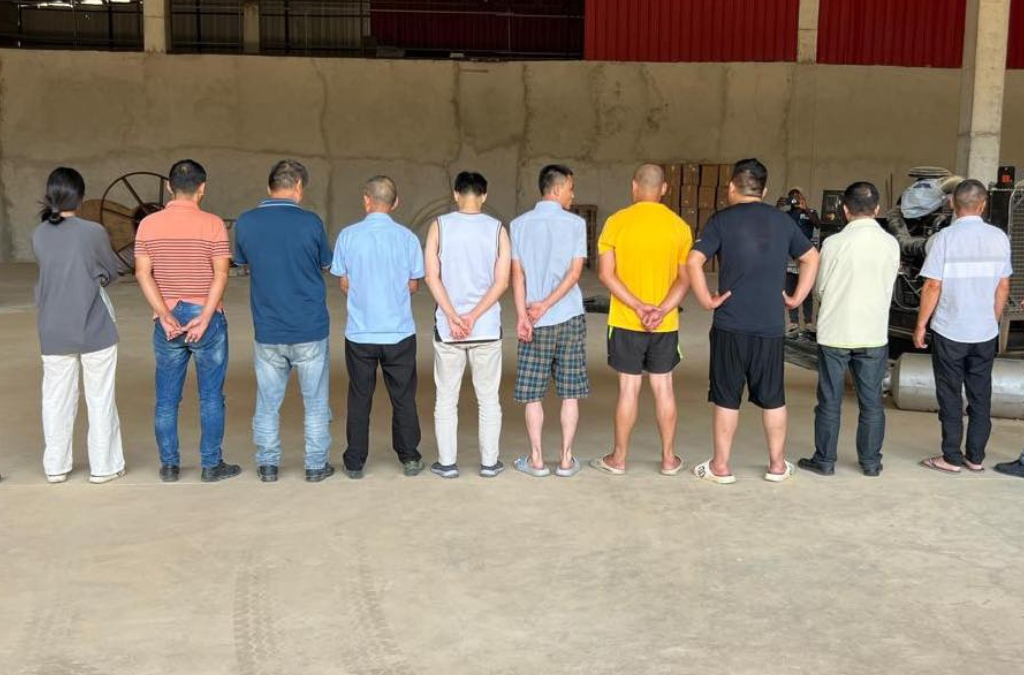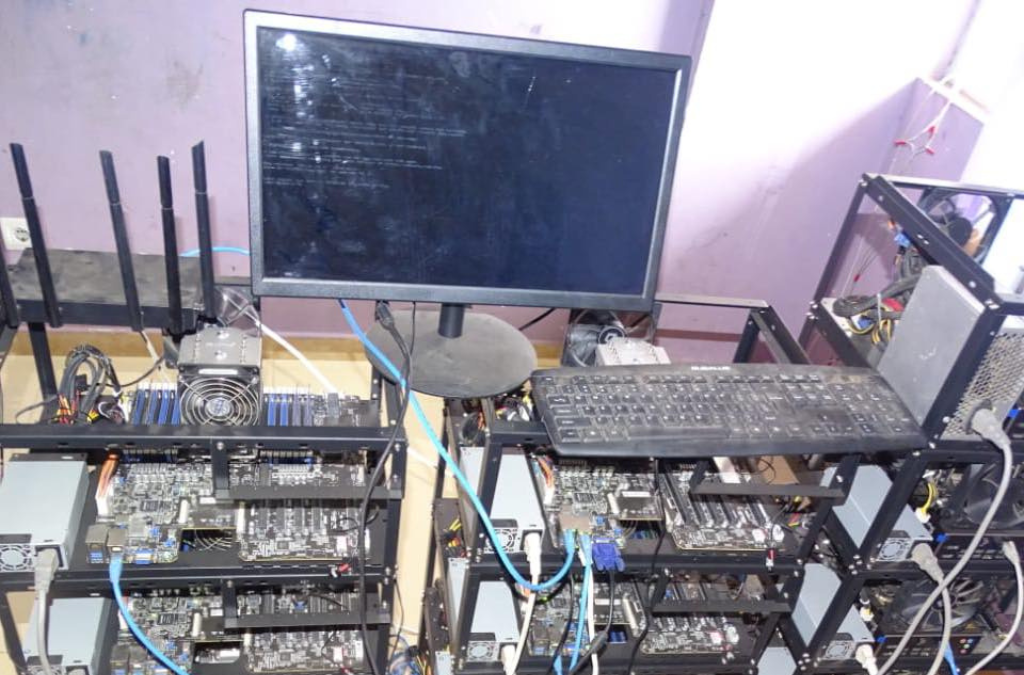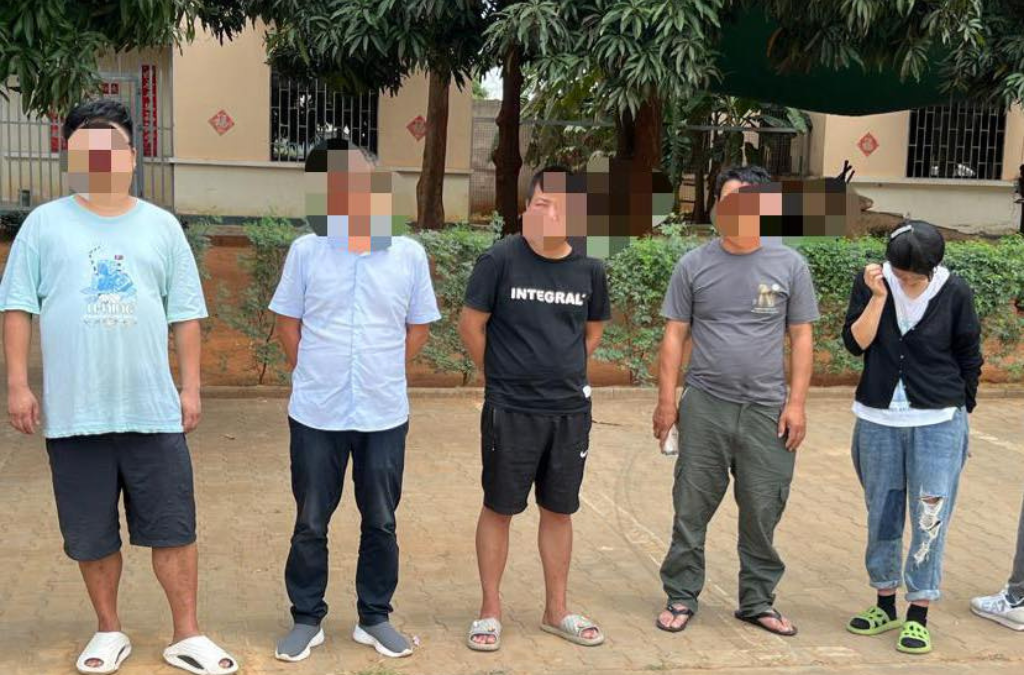Cybercrime doesn’t stop at borders. Nor do cyber defenders.
Together, INTERPOL’s cyber specialists, our member countries and our partners form a global web to catch cybercriminals. We work to track them down, wherever the digital device they’re hiding behind may be.
August 2025 – Operation Serengeti 2.0: Over 1,200 cyber threat actors arrested, more than 11,000 malicious infrastructures disrupted, almost USD 100 million recovered, thanks to the work of investigators in 18 African countries and the United Kingdom.

June 2025 – Operation Secure: Law enforcement agencies in 26 countries across Asia Pacific take down over 20,000 malicious IP addresses or domains and seize 41 servers and 100 GB of data.
November 2024 – Operation Synergia II: Over 90 countries join forces to take down more than 22,000 malicious infrastructures from China to Estonia and Mongolia to Madagascar.
From intelligence to operational success
These are the headline results of the latest major INTERPOL-led cybercrime operations targeting cybercriminals who aim to hack, scam, extort or otherwise harm hundreds of thousands of victims across the globe. Specialists from our cybercrime division work closely with law enforcement agencies in the countries concerned, carrying out investigations based on intelligence provided by our own global cyber intelligence unit or private sector partners including banks and cybersecurity companies .

“Law enforcement colleagues in our member countries have different levels of cybercrime expertise or experience,” says Edmund Goh, Head of INTERPOL Asia & South Pacific Cybercrime Operations Desk, “so we support them ahead of our major operations, providing training and investigative tools that are tailored to each country’s needs, but also to the specific cases we’ll be working when the operation gets underway on the ground”.
Fighting crime and supporting the community
Alongside Operation Synergia, which is global in scope, INTERPOL cyber teams also put a special focus on Africa and Asia*. “Operation Serengeti targets cybercrime across Africa,” says Mohammed Isah, Head of INTERPOL Africa Cybercrime Operations Desk. “We have just completed our second year and, as well as continued overall success in terms of arrests, infrastructure takedown and money recovered, the operation showcased some outstanding national achievements.

A crackdown by Zambian authorities on a large-scale investment fraud scheme identified 65,000 victims who had lost around USD 300 million, for example. The scammers had lured victims into investing in cryptocurrency through extensive advertising campaigns. In Angola, authorities dismantled 25 cryptocurrency mining centres, where some 60 Chinese nationals were illegally validating blockchain transactions to generate cryptocurrency.

The investigation recovered over 45 illicit power stations and confiscated mining and IT equipment worth more than USD 37 million. “The success in Angola shows how our operations can go beyond arrests and seizures and support the local community,” says Mohammed Isah. “In this case, the money and equipment recovered will be used by the Angolan government to support power distribution in vulnerable areas.”
Mitigating impact on victims
2025 was also the first year of Asia & South Pacific’s Operation Secure, targeting infostealers, a type of malicious software used to extract sensitive data from infected devices. The data, such as passwords, cookies or credit card details is then often traded by cybercriminals on the dark web and used for further attacks. As well as taking down over 20,000 malicious infrastructures, the operation also made it possible to warn over 200,000 actual or potential victims that they had been targeted.
“Mitigating the impact on victims is always a priority,” says Edmund Goh, “both during our cybercrime operations and in our work with colleagues in areas like financial crime and human trafficking. Cybercrime is almost always at the crossroads of other illegal activities, as criminals increasingly leverage digital tools to maximise their profits,” he continues. “In recent years and especially in Asia, that has led to the rise of scam centres that create two kinds of victims – the vulnerable people who are held there and forced to carry out online scams and the people and businesses that they defraud,” he says. “As well as following the money to investigate the fraud and combating the human traffickers, law enforcement needs to crack the code behind the cyber component and at INTERPOL we are unique in having the global reach and polycrime expertise to do that.”
*Operations Serengeti and Secure are funded by the UK Foreign, Commonwealth & Development Office within Projects African Joint Operation against Cybercrime (AFJOC) and Asia & South Pacific Joint Operations against Cybercrime (ASPJOC).



